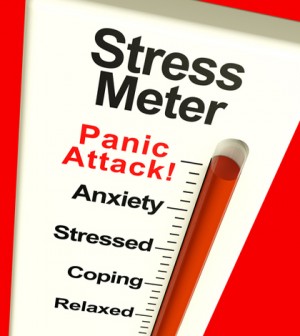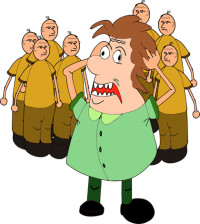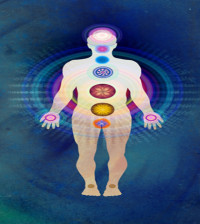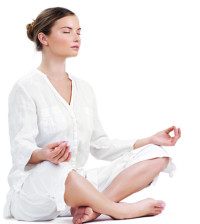- 5 Tips To Finding Peace Within Yourself
- The Do’s and Don’ts of Learning How to Accept Yourself
- How to Find Your Inner Peace and Transform Your Life
- 8 Benefits of Having an Open Mind and How to Get One
- Learn How To Be A Happier Person
- What Is The Meaning Of Life?
- Laws of Abundance – The Riches of Love and Joy
- How to Be Laid Back By Following These 9 Simple Strategies
- The meaning of confucius’ golden rule – 4 practical ways of living it
- 3 methods of unleashing the power of contentment in your life
6 Innovative Ways to Deal with Panic Attacks

A panic attack (also called an anxiety attack) involves a sudden onset of certain physical symptoms, like heart palpitations, shortness of breath, and dizziness. Panic attacks occur in conjunction with other psychiatric conditions, such as depression, anxiety, phobias, and bipolar disorder. By educating yourself about panic attacks, you can gain control of this problem. Find out how to deal with panic attacks now.
1. Recognize the Symptoms of a Panic Attack
By being aware of the various symptoms of an anxiety attack, you can feel more comfortable with them. Knowing that you are not having a heart attack or some other serious illness allows you to focus on the techniques for calming down. There is no exact set of symptoms. Some people have all, while others have only one or two. Some of the common ones include:
- Dizziness and lightheadedness
- Irregular or fast heartbeat
- Shaking or trembling
- Shortness of breath
- Choking sensations and nausea
- Sweating
- Chest pain or heartburn
- Fatigue and weakness
- Hot flashes or sudden chills
- Muscle spasms
- A fear of losing control or going crazy
- Tingling sensations in your extremities
- A fear that you might die or be seriously ill
2. Meditate
Meditation boosts serotonin. Serotonin is a chemical that influences behavior and mood. Low levels of this chemical are associated with depression, anxiety, insomnia, sleep apnea, and fibromyalgia. Regular meditation restores your brain’s serotonin balance.
Meditation enhances HGH. The human growth hormone (HGH) stimulated your growth and development during childhood and adolescence. It is also necessary to sustain your organs and tissues all the way through life. The body’s diminishing supply of HGH causes poor mood, lack of motivation, and poor exercise capacity. By meditating, you can improve your amount of HGH production.
Meditation decreases cortisol levels. This age accelerating hormone is found in the bloodstream in varying levels. It is called the “stress hormone” because it leads to chronic stress, weakened cognitive performance, and lowered immunity. Meditation can help reduce your blood levels of cortisol and reduce the risk of its harmful effects.
3. Relax your Breathing and Muscles
When you feel a panic attack coming on, try simple breathing and relaxation techniques to ease your symptoms. Relax your breathing by putting one hand on your upper chest and the other over your diaphragm; Take a slow, deep breath while counting to five. Once you reach five, let your breath out slowly. Relax your muscles by curling your toes and fists tightly for a count of five, then relaxing for a count of ten. Continue up your body, contracting your calves, thighs, buttocks, chest, shoulders, neck, arms, and hands. By the time you reach your face, you will feel more calm and relaxed.
4. Exercise
For stress relief, there is no better therapy than exercise. The next time you have an anxiety attack, take a walk outside in the fresh air. Walking and light aerobic exercise helps your body produce endorphins. Also, try yoga and stretching maneuvers. These activities reduce muscle tension, burn off excessive adrenaline, and assist you with stress management.
5. Distract Yourself
Distract yourself with a modest task, like snapping a rubber band or counting backwards. Accept the fear, but focus on the task at hand. Simple household chores are good distractors. When you feel a panic attack approaching, fold some laundry, sweep the floor, or dust the bookshelf.
6. Join a Support Group
Talk with your therapist or doctor about joining a support or self-help group. Meeting others with anxiety attacks lets you know you are not alone. Group meetings may give you further insight into your predicament. Also, you will get a chance to hear how others are coping with their problems.












































You must be logged in to post a comment Login